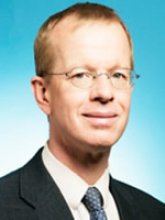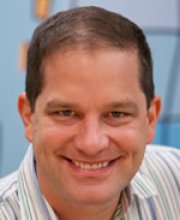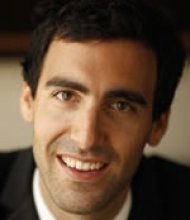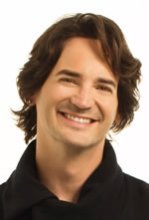The so-called “Internet of Things” is primarily about sensors and databases. The real difference comes from applying the Big Data strategies of the online world to everything we touch, how we act, and how we manage entire ecosystems of information.
Attacking the Structure of Everything
Quentin Hardy is a Silicon Valley insider with vast global experience drawn from years of high-level business reporting around the globe. Hardy is the Deputy Technology Editor for The New York Times and is a frequent television guest on CNBC’s Kudlow & Company. He recently joined The New York Times after serving as an executive editor for Forbes Media; before that, he spent over eight years writing global business stories for The Wall Street Journal. He has written cover stories on such diverse topics as the internet, Africa, finance, enterprise hardware and software, management, satellites, energy, and even the marijuana Industry.
Hardy began his career as an international publisher and has lived and worked in a dozen countries, including Japan, Singapore and the United Kingdom. A recipient of a Knight-Bagehot Fellowship in Business Journalism and an Overseas Press Club award, he also lectures on technology and social change at the UC Berkeley School of Information.
Tyler Bell is a geotechnologist with broad interests in open source and place-based information systems. He is currently director of product at Factual, a Series A start-up that imposes order on the Internet where none otherwise exists. He previously managed platform technologies at LikeList, and led the geo-technologies product team at Yahoo, where he launched the Placemaker and GeoPlanet geo-enrichment platform. A former archaeologist specializing in landscape analysis and the semantic integration of heterogeneous data, Tyler received his doctorate from the University of Oxford before founding a technology spin-out company from the university in 2001.
Anthony is the founder and CEO of Kaggle. Before founding Kaggle, Anthony worked in the macroeconomic modeling areas of the Reserve Bank of Australia and before that the Australian Treasury.
He holds a first class honours degree in economics and econometrics from the University of Melbourne and has published in The Economist magazine and the Australian Economic Review.
In 2011, Forbes Magazine cited Anthony as one of the 30 under 30 in technology and Fast Company featured him as one of the innovative thinkers who are changing the future of business.
The former Chief Information Officer at Google, Douglas Merrill championed innovation at the company as it grew from Internet start up into one of the world's most admired organizations. He brings to his keynotes a rich real world perspective on innovation as strategy and culture while delivering an overview of how new technologies have changed the way we live, and the way we work. Informed, passionate and brilliantly counterintuitive, Merrill now helps companies around the world learn how to build their own sustainable cultures of innovation.
Douglas Merrill is the former CIO and VP of Engineering at Google, where he oversaw a team of 1,500, as well as all aspects of technology, and several high profile projects, one of which, Google Checkout, is now multi-billion dollar business. Merrill has also served as COO of New Music at EMI Group, and as VP of Infrastructure and HR Strategy at Charles Schwab. In academia, he was an Information Scientist at the RAND Corporation. He holds a Ph.D. in cognitive science from Princeton and is the author of Getting Organized in the Google Era: How to Get Stuff Out of Your Head, Find It When You Need It, and Get It Done Right.




